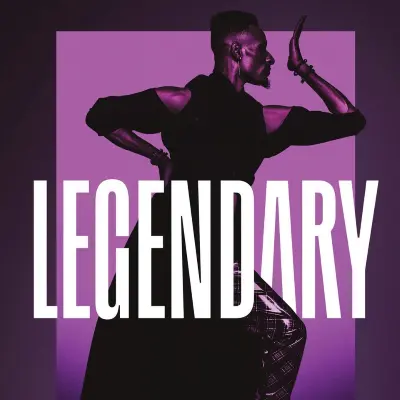HBO Max's voguing reality competition Legendary is a fascinating, messy study in contrasts
-

"The new reality competition series is a celebration of ballroom culture, a chronically underappreciated queer subculture, premiering on the launch day of HBO Max, WarnerMedia’s new streaming service backed by billions of corporate dollars," says Caroline Framke. "It shines a gorgeous, sleek spotlight on its fearsome dancers, who have traditionally had to shine bright in dusky clubs. It pours a sizeable budget into a form of expression that has long depended on DIY ingenuity. Its messaging is slapdash, but its production value is slick as hell, packaging ballroom as an almost high octane sport. Whether you’re an aficionado or neophyte, one has ever seen ballroom presented with such a lavish eye." Framke adds: "Where Legendary falters is with its contestants. With eight houses on deck, each gets a perfunctory intro in the first episode, with some slo-mo footage of individual members paired with them explaining themselves and their trauma in three lines or less. The legacies of the houses, so intrinsic to their identities, get passing mentions. And since the show devotes the vast majority of its hourlong episode run times to the show itself, the behind the scenes of how it comes together — the element that could make Legendary stand out even amongst those who have gone to balls — barely register."
ALSO:
- Legendary is the first queer reality show that has come close to capturing the magic of RuPaul's Drag Race: "The new reality-competition series from HBO Max plays like a mix of Pose, Drag Race, and So You Think You Can Dance," says Jude Dry. "The series follows competing teams from the world of ballroom, a style of dance and fashion competition originated in 1920s Harlem by African Americans and Latinx LGBTQ folks. Ballroom gave rise to voguing, a style of dance characterized by staccato hand movements framing the face, and “death drops,” whereby a dancer’s upright body suddenly falls to the floor like some sort of spastic and fabulous rag doll. No matter how may times you’ve seen it done, it’ll make you jump to your feet in thunderous applause."
- Legendary is hindered by being too vague on what it is looking for in competitors: "To be fair, the show does begin with a brief explanation of the 'houses,' or teams, that contend for trophies and prizes, as well as a blink-and-you'll-miss-it tribute to the 'black and Latina transgender women' who helped make the pose-based, fashion-heavy dancesport what it is today," says Inkoo Kang. "But it's incumbent upon the audience to do some legwork to get a firm sense of this decades-long tradition. That's the generous take, anyway. A more cynical one would suggest that the series' creators are wary of defining the phenomenon, which is why we get vague, feel-good soundbites like 'ballroom taught me how to be me' and 'the ballroom scene is a community' in lieu of an actual explanation. That fuzziness makes it hard to discern what we're supposed to be watching for in the performances, and even harder to understand why certain contestants are cut while others triumph. Despite its queer-friendliness, Legendary hews much closer to America's Best Dance Crew than RuPaul's Drag Race."
- Legendary indulges in the inherently shady nature of ballroom, which makes for great reality TV: "We cut often to contestants backstage (those scenes are always stylized in black and white, which makes for nice dramatic effect), where they snark about other houses, discredit certain performances, or rail against the judges," says Roxana Hadadi. "But there’s no real backstabbing here, no truly malevolent nastiness. The houses all want to win, but their desire to walk away victorious is what inspires their commentary, not spite."
- HBO Max will post Legendary's first episode on YouTube on Thursday morning
TOPICS: Legendary, HBO Max, Reality TV
